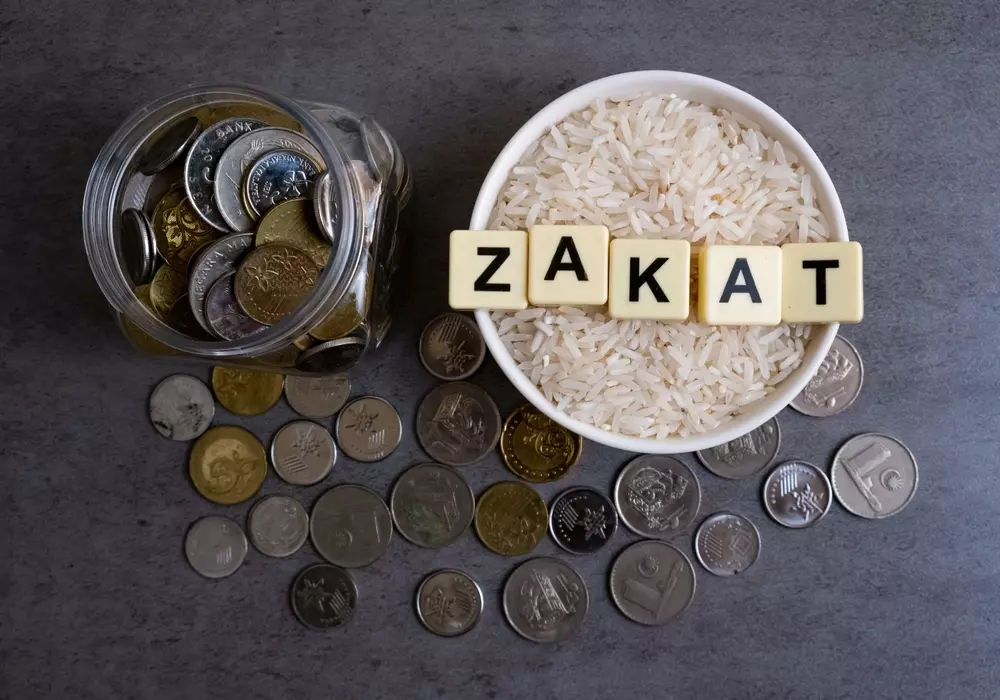Itikaf is one of the highest forms of worship in Islam. It carries great spiritual rewards for those who undertake and complete it. Let us explain the meaning and practices of Itikaf, and explore some of the most important questions surrounding this beautiful act of devotion and personal growth.
What is Itikaf?
For Muslims, Itikaf is a form of spiritual retreat when they go into a mosque for a certain number of days. This time is dedicated to prayer, ritual and reflection.
Islam differs from many other major faiths by not permitting monasticism. Christian monks, Hindu swami or Buddhist bhikkus seclude themselves from the world to devote themselves to spiritual activities. But in Islam, it is held that to be a good Muslim you must work at balancing spiritual and worldly demands through life. Muslims also have duties to their family, their community and the wider world, which cannot be met if you dedicate your life entirely to religious and spiritual matters. The blessings of Allah (SWT) are reward for fulfilling both your spiritual and worldly obligations together.
Itikaf exists because the balance between worldly and the spiritual is not easy to maintain. Important worldly concerns can take priority and slow down our spiritual progress. Thus, Itikaf is a powerful and beautiful way to redress the balance, get away from the routines of the world and devote our heart and soul only to spiritual acts for a while.
When can you do Itikaf?
Itikaf can be done at any time. However, it is most usually done during the last ten days of the holy month of Ramadan. This is a sunnah – a practice of the Prophet Muhammad (PBUH). Therefore, carrying out this practice and performing Itikaf at this time carries even greater power and spiritual rewards.
How to Perform Itikaf?
There are three forms of Itikaf. The most common is known as ‘Sunnah Mu’akkadah’ or ‘Emphasised Itikaf’. This is the type observed in the last ten days of Ramadan. In keeping with the rules of the Holy Month, those undertaking Itikaf must fast – abstain from food and drink – during the daylight hours. This is also a communal act. If only one person from a community carries out Sunnah Mu’akkadah, the obligation is lifted from the rest. Equally, if no one performs it, it is a sin that applies to all.
There is also Obligatory (‘Wajib’) Itikaf. Before embarking on a challenge or endeavour, a Muslim can make a vow (‘nazar’) that if Allah (SWT) grants them success, they will perform a certain number of days of Itikaf. Although this vow is entered into voluntarily, once it is made the Itikaf becomes obligatory. The person performing Itikaf must fast during their retreat and must observe the number of days they stated in their vow.
Finally, there is Voluntary (‘Nafl’) Itikaf. This can be performed at any time of the year, and without entering into a vow or obligation beforehand. There is no lower time limit for Nafl Itikaf, although some Islamic scholars hold that it should be at least a full day. Others say that even a few hours of seclusion and dedication in a mosque are sufficient. No fasting is required in this form of Itikaf, although doing so heightens the power of the undertaking.
What to do During Itikaf
The central purpose of Itikaf is to have time and space dedicated to worship in its various forms. Time spent performing Itikaf should be time spent in prayer, recitation and reflection. It’s also a chance to perform acts of worship (‘ibadat’) that we otherwise may not have the time to do.
Worship during Itikaf should focus on the Quran and strengthening your understanding of and relationship with the words of Allah (SWT). It takes about 24 hours to recite the Quran if reading aloud non-stop. So performing Itikaf across ten days (whether as Sunnah Mu’akkadah or at another time) presents enough time to recite the complete Quran at least once, even when allowing time for other activities.
These other activities should include reading the Quran in translation for your own language and studying tafsir – scholarly commentary on the Quran. These will deepen your understanding of the meaning of the Quranic verses.
Memorising parts of the Quran is an ideal act for Itikaf. We should hold as much of the Quran in our heads and hearts as possible, but the distractions and pressures of daily life make it hard to set aside as much time and concentration to this as we would like. Make increasing your memorisation of the Quran one of your goals for Itikaf.
Itikaf is also an opportunity to dedicate more time to prayer (salah). Muslims are obligated to pray five times each day, but it was a sunnah (practice of the Prophet Muhammad – PBUH) to pray more than this.
As narrated by Umm Habibah Ramilah bint Abu Sufyan (RA), she heard the Prophet (PBUH) saying:
“A house will be built in Paradise for every Muslim who offers twelve units of Prayers other than the obligatory ones in the day and night, to seek the pleasure of Allah (SWT).”
These twelve units (rak’a) of Sunnah Prayer are extra prayers spread throughout the day – two before Fajr (morning prayers), four before and two after Dhuhr (early afternoon prayers) and two each after Maghrib and Isha (the sunset and nighttime prayers). There are also four rak’a for before Asr (late afternoon prayers), but these are less emphasised as sunnah, although they still carry great spiritual rewards if performed.
Performing Itikaf is also the time to make nafl (voluntary) prayers, which are not obligatory or following the sunnah of the Prophet (PBUH) but are done out of your own desire to develop your spirituality and draw nearer to Allah (SWT).
If you have missed any of the five obligatory (fardh) prayers, Itikaf is the ideal time to perform these acts and make good. You should make these at or near the start of Itikaf, before making any extra or voluntary prayers, since it is more important to repay your spiritual debt to Allah (SWT). If you wake up during the last third of the night to make these missed prayers, the act is more powerful and counts as Tahajjud – a spiritually rewarding night prayer.
Can you do Itikaf at home?
The majority opinion from scholars is that Itikaf can only be done at a mosque. This is in keeping with the statements of the Prophet (PBUH) in the Quran. It also gains the best spiritual benefits and allows those undertaking Itikaf to fulfil their other obligations with regard to prayer without having to travel or leave a true state of seclusion from the outside world.
However, Allah (SWT) values sincere intentions more than just the performance of rituals and the following of rules. He knows and understands compelling conditions. If you have a good reason to be unable to undertake Itikaf in a mosque but fully engage with the spirit and significance of this form of worship, rewards can still be gained.
Some forms of Islamic jurisprudence decree that women should undertake Itikaf at home in a room set aside for the purpose. But women may also carry out Itikaf at a mosque, if they have privacy and access to the necessary facilities.



